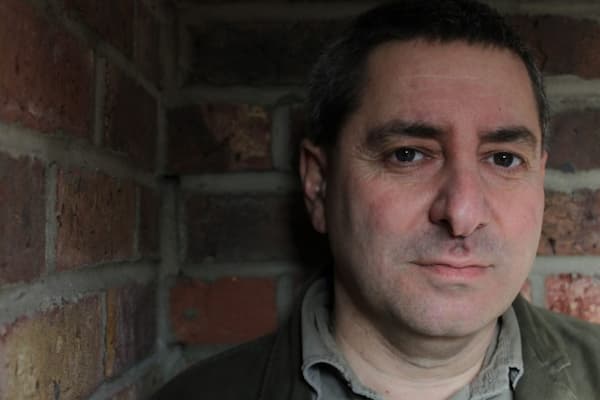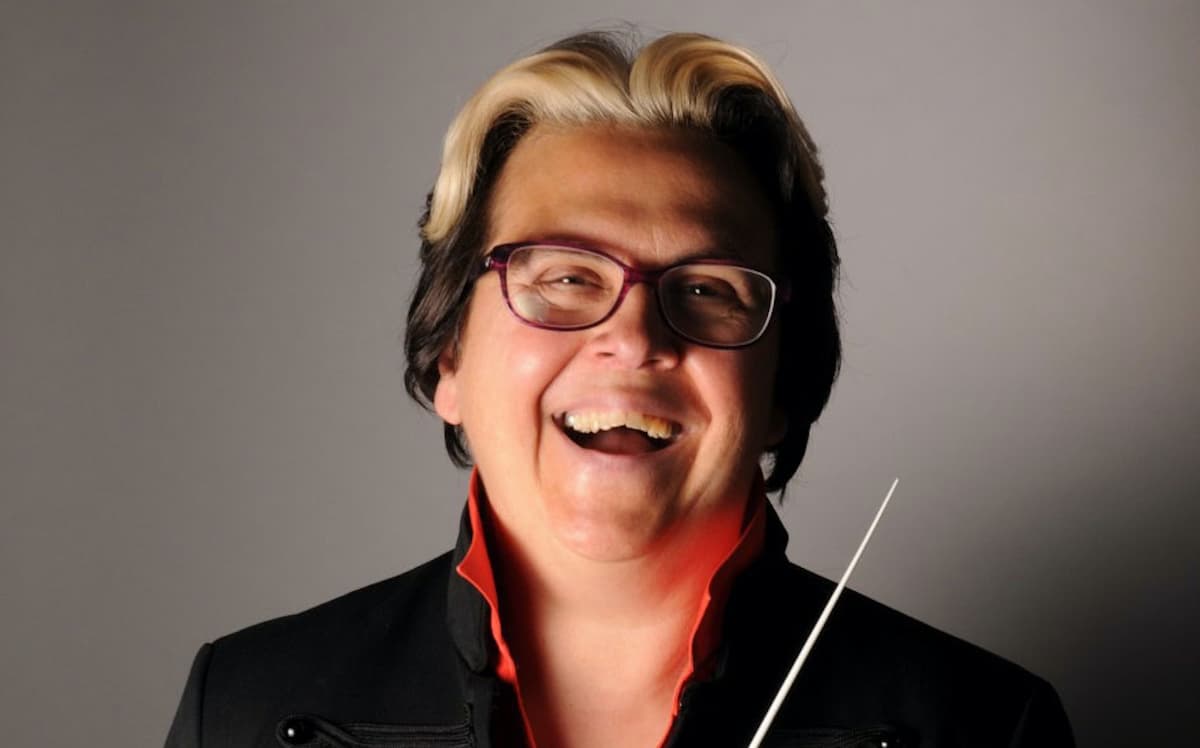Meet Sophia Stoyanovich, an American violinist who recently released her debut album with pianist Derek Wang and cellist Aaron Wolff featuring compositions written by her father, Patrick Stoyanovich. A deeply personal project, this recording took just over four years to finish. It is Sophia’s mission to share her father’s music with more people, and in this interview, she introduces us to the varied styles of her father’s music and the fulfillment of playing music written by him.
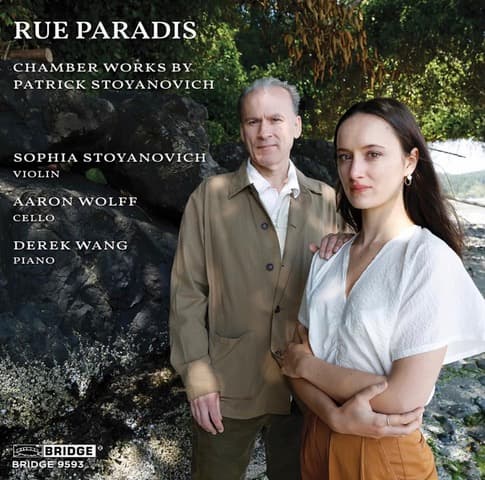
How did you discover your love for playing the violin?
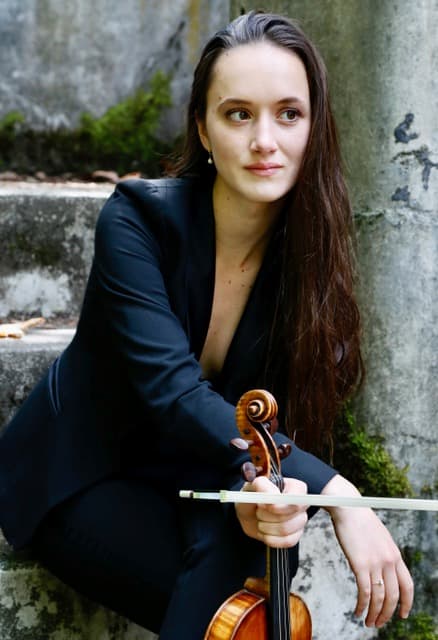
Sophia Stoyanovich, 2023
Fortunately, on my own! People frequently ask me, “If you were born into a musical family, how did you know you wanted to play the violin? Was it thrust upon you?” In my case, my parents were not string players, and they were slow in introducing me to the violin, not until I was almost 6, and in a very casual way for the first few years. I think they wanted me to fall in love with violin on my own because that’s really the only way to sustain a career in music. Fortunately, this ended up being the case for me, for which I am grateful. It’s certainly a challenging profession, but there are so many parts of playing that I love being a part of: orchestral, chamber, or a new project like this album! There have been different moments where I’ve added to my idea of what it means to be a violinist, and that’s something that’s constantly inspiring me: that constant idea of discovery.
Are your parents both composers, or what instruments do they play?
My father is a composer, and my mother is a conductor and educator. My father started as a jazz pianist and then went to Michigan for his undergraduate in French horn and piano. Later, he completely switched to composition, which was sort of an undeniable calling he had to follow through on, you could say, and went on to do his graduate studies in composition at Yale. You certainly can hear his background in jazz in his compositions, whether literally in the chords chosen or in the sheer freedom and richness that runs through so much of his music. The creativity of jazz emboldened him to look at music differently when he started writing more seriously, and I think it’s given so much to all of his music.
Congratulations on the recent release. In the album, you played with pianist Derek Wang and cellist Aaron Wolff. How long have you played together? How long have you known each other?
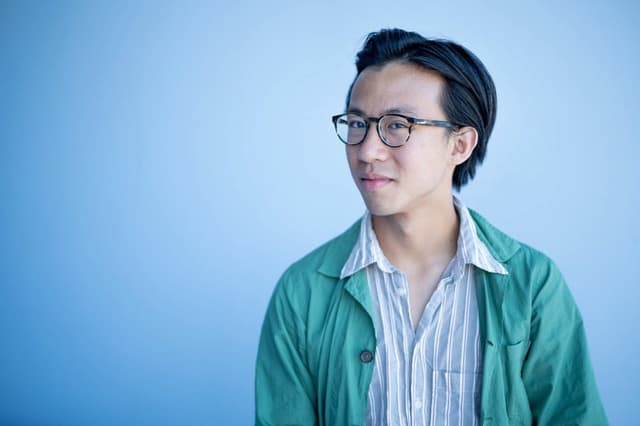
Derek Wang
I’m lucky to say I’ve known Derek and Aaron for many years; they are incredible musicians. We all overlapped at Juilliard but never got around to performing together as a trio before this album, so it’s been a joy to have the dream realised with such a personal project!
Derek is my partner, but we met many years ago on a radio show called “From the Top” in 2014. Consequently, we ended up exploring a lot of the classical violin/piano chamber repertoire before we got together romantically. It’s a lot of fun to rehearse with him, which is why we’ve played together for so long.
Aaron is someone I’ve admired for years. His playing has consistently blown me away. He really represents the kind of artist who is outgoing and open to taking on more experimental and creative projects, so I slowly mentioned the idea of the album to him over a few dinners and whatnot. Fortunately, he was up for it!
The album features works by your father, Patrick Stoyanovich. Do you play a lot of your father’s works growing up?
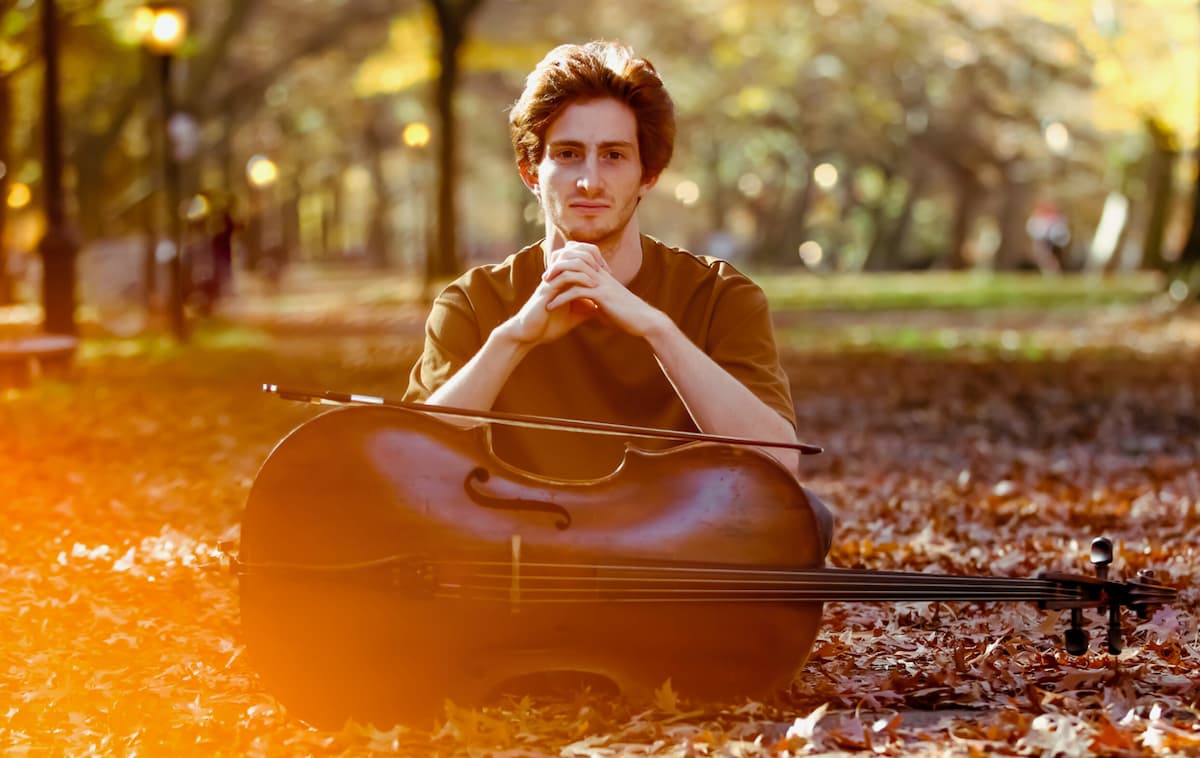
Aaron Wolff
Oh, absolutely. My experience in music certainly has been shaped by growing up with a composer as a father, and I want to represent that when I have a choice in my programming. I see his music as a part of the repertoire I want to perform like anyone else, from Beethoven to Stravinsky. It’s been a gift in many ways. I came to Juilliard with an interest in living composers because of him, and I could collaborate on so much great music I had no idea existed before due to this open mindset. I think it’s important to say that I deeply believe in his music for what it is, unrelated to my familial relation. This is difficult to explain sometimes, as it’s understandable I could perhaps be playing his music only for that familial connection. But beyond his music being just straight up technically difficult in general (some truly gnarly passagework on this album if you listen! It takes a lot of effort to play; I wouldn’t be doing so if I didn’t really love it!). There is a depth I constantly find inspiring to explore his music that ultimately feeds back into whatever other music I play.
This album is certainly a unique project.
For sure. I am fortunate that Derek and Aaron both believed in the music and project as a whole. It was a unique project in many ways, from having my father be able to come to rehearsals and correct or change things on the spot to feeling a great sense of responsibility recording music that has never been recorded before; you really want to get it right! I do feel that we ultimately succeeded in bringing his ideas and emotional desires to light while representing ourselves individually as artists as well, which I’m proud of.
How was it different playing the compositions by your father compared to other composers?
I believe all composers have their own language, or “flavour”, if you’d like to say so. I try not to look at anyone’s music fitting into a rigid box; that’s where stereotypes and unoriginal performances are born. It’s certainly true that there’s something uniquely challenging with my father’s background, pulling so many different musical styles and techniques into his compositions and actually making sense of it! Often, one hears a new piece with great intentions but doesn’t quite come together for balance or technical reasons of proportion. With my father’s music, I find the combination of freedom and trust given to the performer while consistently keeping a keen sense of the proportions, structurally and emotionally, gives it a real originality and beauty that’s constantly inspiring to consider and perform.
Sophia is pursuing a doctorate at Juilliard, and she plans to use her father’s violin sonata as the subject of her dissertation. The album Rue Paradis: Chamber Works by Patrick Stoyanovich is now available on online streaming platforms. Learn more about Sophia Stoyanovich.
For more of the best in classical music, sign up for our E-Newsletter

